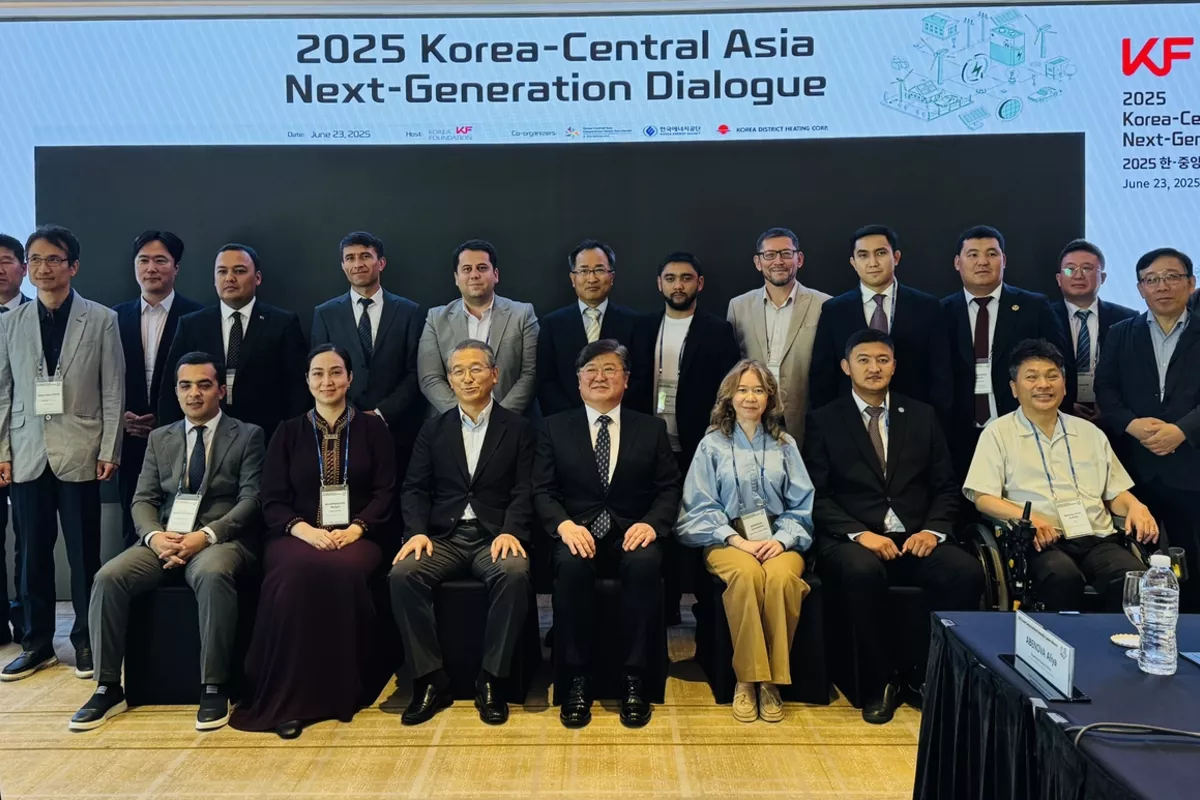
Photo credit: Sanjay Kumar/The Korea Herald
South Korea and Central Asian nations held discussions on renewable energy during the 2025 Korea-Central Asia Next-Generation Dialogue on Monday.
The annual forum, launched by the Korea Foundation in 2017, is part of an initiative to enhance cooperation by inviting emerging leaders from Central Asia to Korea, The Caspian Post reports citing foreign media.
With the attendance of representatives from Kazakhstan, Kyrgyzstan, Tajikistan, Turkmenistan and Uzbekistan, this year's dialogue focused on the current status and mid- to long-term development strategies for the renewable energy industry.
In his opening remarks, Lee Jong-kook, the executive director of the Secretariat of Korea-Central Asia Cooperation Forum, highlighted the dialogue as a platform for East Asia and Central Asia to pursue a sustainable future.
Lee noted that this is the third invitation-based training program in renewable energy since the forum partnered with the Korea Energy Agency in 2021.
“Experts from both regions will share insights on the latest policies and industry trends and engage in in-depth discussions on avenues for practical cooperation,” Lee added, saying he hopes that the dialogue leads to tangible and sustainable partnerships.
He emphasized that this year’s theme, “Renewable Energy and Energy Efficiency,” is timely and crucial for tackling global challenges like climate change and fossil fuel depletion.
Renewable energy’s vast potential and decreasing costs make it central to global climate efforts. While Central Asian countries view Korea as a trusted solar partner, Korean companies remain hesitant to invest in Central Asia due to a lack of incentives and unclear market information.
“Since 2021, the center has trained 258 Uzbek energy professionals, with 100 more planned this year. These experts actively conduct energy audits and promote efficiency initiatives,” said Shin Boo-nam of the Korea Energy Agency.
He highlighted the agency’s role in energy efficiency and climate response, noting projects such as small hydropower studies in Kazakhstan and bio-pellet plants in Uzbekistan.
Field visits to Korea Southern Power Co., Hyundai Energy Solutions and other renewable energy facilities promise to yield valuable insights for all participants, according to Shin.
Central Asia is expanding its focus on nuclear energy, led by Kazakhstan and Uzbekistan, due to the region's vast uranium deposits, but Central Asia faces major infrastructure challenges, with $40-50 billion needed for modernization, according to experts.
Korea is supporting the transition through a $3 million contribution to an ADB fund for sustainable project development.
In view of Central Asia's growing population and rising energy demand, the Korea-Central Asia dialogue highlighted the urgency of regional cooperation on energy for a sustainable future.
Share on social media